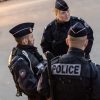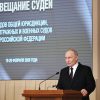
The Greater Manchester mayor has called for an urgent review of the 10pm curfew for pubs and restaurants in England, warning it is doing more harm than good and had created an “incentive” for people to gather in homes and streets.
Andy Burnham suggested a 9pm curfew on the sale of alcohol in shops and supermarkets should be put in place alongside the current restriction to prevent a rush to buy supplies for gatherings after pubs closed.
“My gut feeling is that this curfew is doing more harm than good,” he told BBC Radio 4’s Today programme on Monday, adding that over the weekend he “received reports that the supermarkets were absolutely packed out to the rafters”.
“What we’re told is the main place where the virus is spread is in gatherings in the home,” he said. “I think the government needs to give some urgent consideration to this because if it is doing more harm than good and actually also damaging businesses that have spent a lot of money getting themselves ready to reopen, then I think they shouldn’t just plough on with it.”
His comments came after the Liverpool mayor, Joe Anderson, warned the curfew – which came into force in England and Wales on Thursday – was making things more dangerous after large crowds gathered in the city when venues turned revellers out on Saturday night.
Responding to Burnham’s suggestion of further restrictions to prevent gatherings, the junior health minister Helen Whately said the government was keeping “an open mind” and did not rule out speculation that strict new measures may come into force in northern England and London in response to rising virus rates.
Quick guide Will there be a second wave of coronavirus?
Show
Hide
In recent days the UK has seen a sudden sharp increase in Covid-19 infection numbers, leading to fears that a second wave of cases is beginning.
Epidemics of infectious diseases behave in different ways but the 1918 influenza pandemic that killed more than 50 million people is regarded as a key example of a pandemic that occurred in multiple waves, with the latter more severe than the first. It has been replicated – albeit more mildly – in subsequent flu pandemics. Until now that had been what was expected from Covid-19.
How and why multiple-wave outbreaks occur, and how subsequent waves of infection can be prevented, has become a staple of epidemiological modelling studies and pandemic preparation, which have looked at everything from social behaviour and health policy to vaccination and the buildup of community immunity, also known as herd immunity.
Is there evidence of coronavirus coming back in a second wave?
This is being watched very carefully. Without a vaccine, and with no widespread immunity to the new disease, one alarm is being sounded by the experience of Singapore, which has seen a sudden resurgence in infections despite being lauded for its early handling of the outbreak.
Although Singapore instituted a strong contact tracing system for its general population, the disease re-emerged in cramped dormitory accommodation used by thousands of foreign workers with inadequate hygiene facilities and shared canteens.
Singapore’s experience, although very specific, has demonstrated the ability of the disease to come back strongly in places where people are in close proximity and its ability to exploit any weakness in public health regimes set up to counter it.
In June 2020, Beijing suffered from a new cluster of coronavirus cases which caused authorities to re-implement restrictions that China had previously been able to lift. In the UK, the city of Leicester was unable to come out of lockdown because of the development of a new spike of coronavirus cases. Clusters also emerged in Melbourne, requiring a re-imposition of lockdown conditions.
What are experts worried about?
Conventional wisdom among scientists suggests second waves of resistant infections occur after the capacity for treatment and isolation becomes exhausted. In this case the concern is that the social and political consensus supporting lockdowns is being overtaken by public frustration and the urgent need to reopen economies.
However Linda Bauld, professor of public health at the University of Edinburgh, says “‘Second wave’ isn’t a term that we would use at the current time, as the virus hasn’t gone away, it’s in our population, it has spread to 188 countries so far, and what we are seeing now is essentially localised spikes or a localised return of a large number of cases.”
The overall threat declines when susceptibility of the population to the disease falls below a certain threshold or when widespread vaccination becomes available.
In general terms the ratio of susceptible and immune individuals in a population at the end of one wave determines the potential magnitude of a subsequent wave. The worry is that with a vaccine still many months away, and the real rate of infection only being guessed at, populations worldwide remain highly vulnerable to both resurgence and subsequent waves.
Peter Beaumont, Emma Graham-Harrison and Martin Belam
Was this helpful?
Thank you for your feedback.
“There’s quite a lot of coverage in the papers about will there be further restrictions. I mean clearly we don’t want to do that, but I wouldn’t rule it out because you do need to get the Covid rates under control,” she told the Today programme.
But she added it was “clearly early days” in terms of seeing how the curfew would impact coronavirus rates. “For anyone coming out of a pub or restaurant at 10 o’clock and thinking what to do next and tempted by the idea of going on and partying, I’d say think of the consequences of your actions.”
Weekly data from Public Health England showed just 22 out of 772 new cases in the week up to 20 September were caused by the hospitality industry. But Whately said the government’s aim was to “break the chains of transmission”.
She told Sky News that the government had been looking closely at contact-tracing activities in areas with large outbreaks. “One of the things you can see is some of the contacts have been in hospitality,” said Whately.
Burnham also urged the government to simplify and clarify Covid-19 restrictions, which differ in regions where local lockdowns are in force, in order to increase levels of compliance.
“There is currently a dissonance between the national and the local requirements,” he said. “For instance, the rule of six does not apply in the same way in areas of local restrictions, where we’re required not to meet in the home and advised not to meet in public venues and that is understandably causing confusion amongst the public.”




















































Свежие комментарии